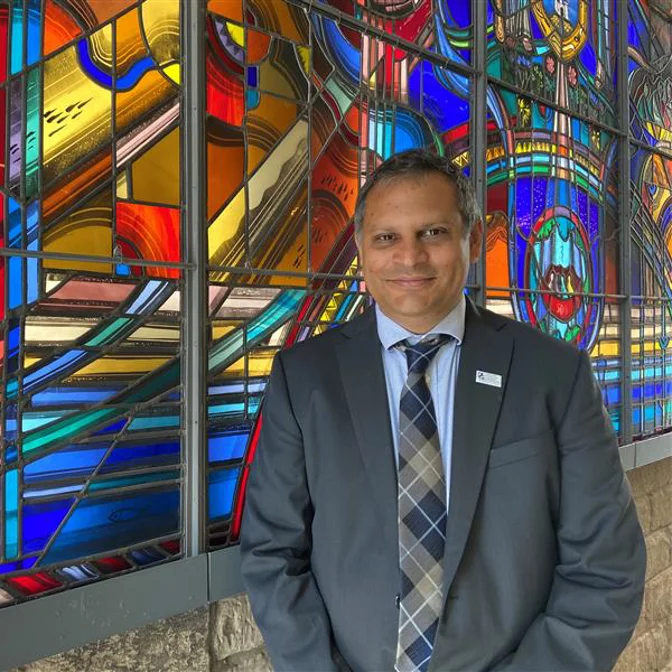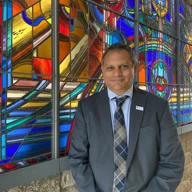The Royal College of Surgeons of Edinburgh (RCSEd) are delighted to announce the upcoming Annual Faculty of Surgical Trainers Conference taking place on 2 December.
The theme of this online event is 'Enhancing Training Effectiveness Through Evidence-Based Practices' and will feature expert speakers discussing the importance of evidence-based practices, exploring curricula from abroad, and sharing real-life experiences in training.
The conference will be led by RCSEd Faculty of Surgical Trainers Director Professor Alexander Phillips, joined by our FST Executive.
Professor Alexander Phillips
FST Executive
Professor Alexander Phillips is a Consultant Oesophagogastric Surgeon, based at the Royal Victoria Infirmary, Newcastle upon Tyne.

We spoke to Professor Phillips and learned why it is essential for medical educators to attend the event, as well as the challenges that the conference will address.
At this year's conference we will have an esteemed group of national and international experts in Surgical Education delivering talks on enhancing training effectiveness through evidence-based practices. It is essential for medical educators to attend conferences like this for several reasons:
- Staying up-to-date: These conferences provide the latest research and best practices in medical education.
- Networking: Attendees can connect with peers and experts, fostering collaboration and idea-sharing.
- Gaining diverse perspectives: The inclusion of international curricula and real-life experiences offers a broad view of surgical training.
- Reflection and improvement: The conference encourages educators to reflect on their own practices and identify areas for improvement.
Educators can apply what they learn by:
- Reviewing their current curricula and identifying areas where evidence-based practices can be incorporated.
- Implementing new teaching strategies based on adult learning principles discussed in the conference.
- Adapting successful elements from international curricula to suit their local context.
- Using the real-life experiences shared to anticipate and address potential challenges in their own programs.
- Engaging in ongoing discussions with colleagues about implementing evidence-based practices in their institutions.
Evidence-based practices can significantly improve the quality and outcomes of medical training programs by:
- Incorporating research findings into training practices, ensuring that the most up-to-date and effective methods are used.
- Focusing on adult learning principles, which can lead to more engaging and learner-centered training experiences.
- Providing a foundation for designing curricula that is proven to be effective, rather than relying on traditional methods that may not be as efficient.
- Allowing for the identification and implementation of best practices from various international curriculums, broadening the perspective of training programs.
By basing training methods on evidence, we can ensure that surgical trainees receive the most effective education possible, ultimately leading to better-prepared surgeons and improved patient outcomes.
While the conference will likely address this in more detail, some challenges medical educators may face when implementing evidence-based curricula include:
- Resistance to change from those accustomed to traditional methods.
- Time and resource constraints in adapting existing programs.
- Varying learning styles and needs of trainees.
- Keeping up with the rapidly evolving field of medical education research.
These challenges can be overcome by:
- Providing comprehensive training and support for educators.
- Gradually implementing changes and demonstrating their effectiveness.
- Designing flexible curricula that can accommodate different learning styles.
- Encouraging ongoing professional development and staying current with the latest research.
- Fostering a culture of continuous improvement and openness to new ideas.
We look forward to seeing you at this year's online conference on 2 December 2024. Click Here for more details and to book your place today!


